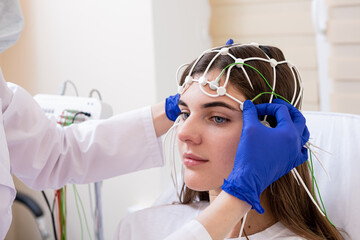
Alarming Discovery: Microplastics in Arteries Associated with 4.5x Higher Rates of Heart Attack, Stroke, and Death
In a highly concerning new discovery, researchers have found that the tiny plastic particles polluting our environment are not just all around us - they're inside us too. And when these microplastics accumulate in our arteries, they may dramatically increase the risk of heart attacks, strokes, and early death.
A groundbreaking new study has uncovered an alarming link between microplastic pollution and cardiovascular disease. The research, published in the New England Journal of Medicine, found that people with microplastics embedded in the plaque deposits clogging their arteries had a 4.5 times higher risk of suffering a heart attack, stroke, or death compared to those without detectable microplastics in their arterial plaque.1
The study, conducted by a team of Italian researchers, involved 257 patients who underwent surgery to remove built-up plaque from their carotid arteries in the neck between 2019 and 2020.1 Using sophisticated chemical analysis techniques like pyrolysis-gas chromatography-mass spectrometry and stable isotope analysis, as well as high-resolution electron microscopy, the scientists analyzed the excised plaque specimens for the presence of microplastics and nanoplastics (MNPs).1
Shockingly, they discovered that 58.4% of the patients had measurable amounts of polyethylene in their arterial plaque, with an average concentration of 21.7 micrograms per milligram of plaque tissue.1 Additionally, 12.1% of patients also had detectable levels of polyvinyl chloride, another common plastic, at an average of 5.2 micrograms per milligram of plaque.1 Under electron microscopy, the researchers observed jagged-edged plastic particles scattered among the immune cells and debris in the plaque deposits.1
But the most concerning finding came from following the patients' health outcomes over an average of nearly 3 years after their surgery. The researchers found that those patients with MNPs detected in their excised plaque had a staggering 4.53 times higher risk of experiencing a major adverse cardiovascular event - defined as a heart attack, stroke, or death from any cause - compared to patients without detectable MNPs in their plaque.1
While previous studies in animals have suggested that MNPs may promote inflammation and act as a potential risk factor for cardiovascular disease, this is the first direct evidence in humans linking the presence of MNPs in arterial plaque with adverse clinical outcomes.1 The findings raise serious concerns about the potential health impacts of ubiquitous microplastic pollution.
As Dr. Philip Landrigan, who wrote an accompanying editorial, put it: "Inaction is no longer an option...We need to encourage our patients to reduce their use of plastics, especially unnecessary single-use items."2 At a societal level, he argues, addressing the harms of plastic pollution must be a key part of the urgent transition away from petroleum-based products.2
While the study demonstrates a clear association between MNPs in plaque and increased cardiovascular risk, it's important to note that it does not definitively prove that the plastic particles directly caused the higher rates of heart attacks, strokes, and deaths.2 More research is needed to fully understand the mechanisms by which MNPs may contribute to cardiovascular disease.
Nevertheless, the findings serve as a wake-up call about the potential dangers posed by the microplastics that now contaminate virtually every environment on Earth and are regularly consumed by humans. As Dr. Eric Topol, a cardiologist at Scripps Research, told USA Today: "This is big. This is as good a smoking gun for plastics as we've seen."2
Ways to Mitigate Microplastic Harms
- Boiling, Distilling and Reverse Osmosis Water Purification: A new study reveals that simply boiling tap water can eliminate up to 90% of the nano- and micro-plastics that have infiltrated our drinking water supply. This straightforward method provides a ray of hope amid the complex environmental challenge posed by plastic pollution. Ideally, one would boil the water or use distillation to remove the plastic as well as many other dissolved solids found in normal tap water. Or, one can boil the water and then use a reverse-osmosis water purifier to remove the remaining toxic load of inorganic compounds.
- Activated Charcoal: Preliminary research indicates that activated charcoal may adsorb and remove micro- and nano-plastics from the body. Global Healing makes an ozonated version with enhanced micropore numbers increasing its ability to bind to and neutralize these plastics. To check out the activated charcoal made by our friends at Global Healing, click here.
- Bag Free Teas: There are excellent tea brands that do not use tea bags, and are grown in organic and wild-simulated fashion, ensuring your teas are of the highest quality and potency.
- If you visit our friends at Kauai Farmacy using the following link and enter the coupon code GREENMEDINFO, you can get 15% off: https://shop.
kauaifarmacy.com/discount/GreenMedInfo - Detoxifying Microplastics Through Sweat: One possible way to enhance bodily detoxification of microplastics is through sauna- or exercise-induced sweating. Learn more about detoxification via sweating here.
© [3/20/2024] GreenMedInfo LLC. This work is reproduced and distributed with the permission of GreenMedInfo LLC. Want to learn more from GreenMedInfo? Sign up for the newsletter here //www.greenmedinfo.com/greenmed/newsletter.
------------------------------------------------------------------------------------------------
Administering medications to patients is part of the plan of care in nursing practice no matter the care setting utilized. In today’s healthcare environment of ever expanding nursing roles and practice settings. To brush up on your pharmacology and strengthen your med pass knowledge, check out the following courses:
- Antipsychotic Medications in Dementia Care
- Basic Pharmacology 1
- Critical Thinking in Medication Administration
- Diabetes Medications
- ICU Pharmacology: Commonly Used Medications
- IV Push Medications
- IV Antibiotic Education Package
- Medication Administration in Corrections
- Moderate Sedation
- Navigation of the Medication Reconciliation Process
- Prevention and Management of Intravenous Extravasation
- Treatment Options for Rheumatoid Arthritis
Pedagogy's courses are available for purchase by the individual or facility. For individuals, register with us to create your username and password, click on the course title of interest and then click the Purchase button. For a complete listing of all our online continuing education courses, including the largest selection of infusion continuing education courses offered online, click here!
For organizations that would like to purchase education for their entire staff, email sales@pedagogyeducation.com and let us know the course(s) of interest and how many staff members you need to provide education for, and we will be happy to send you a price quote.

